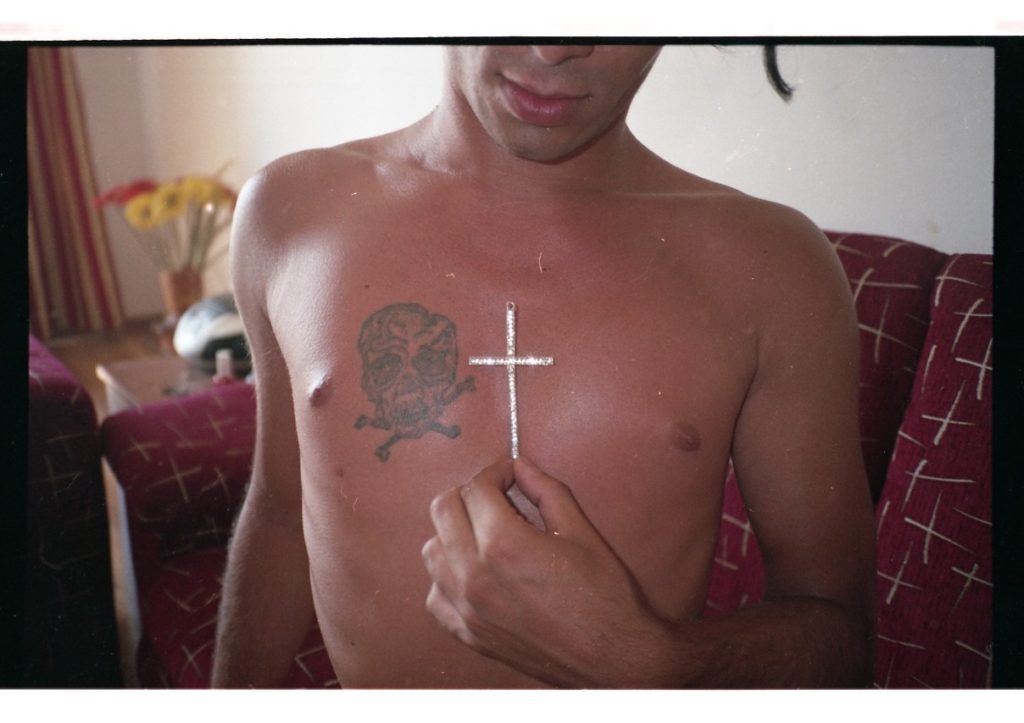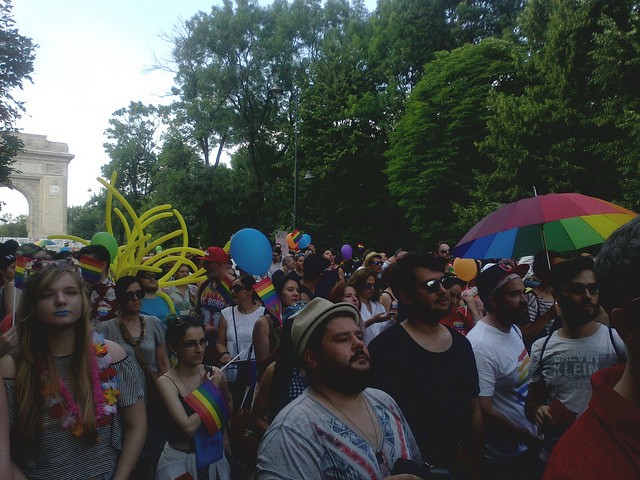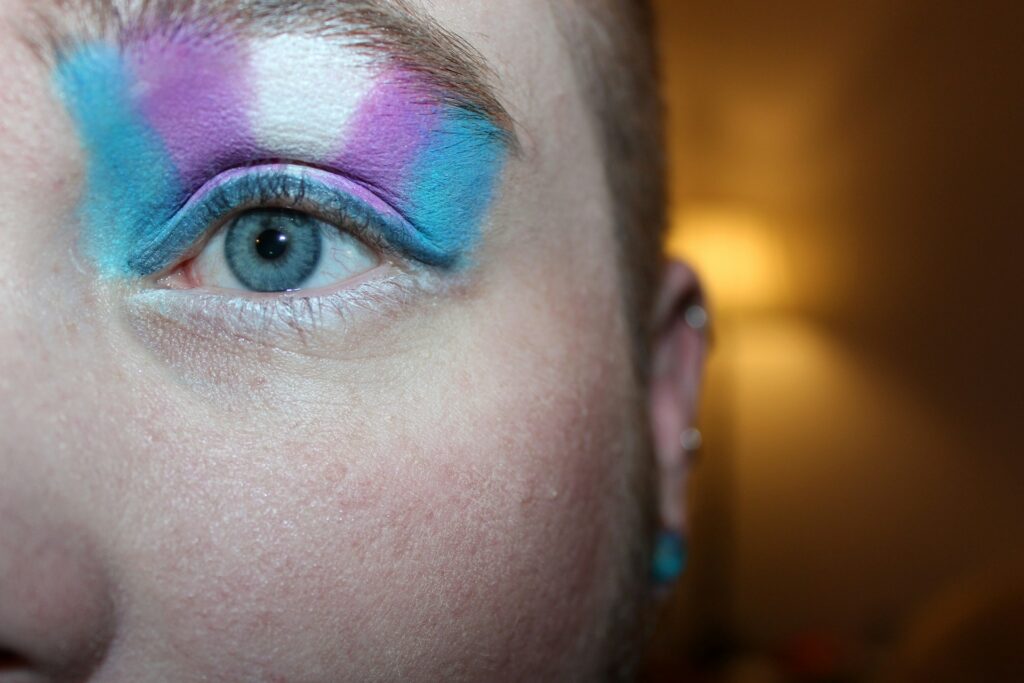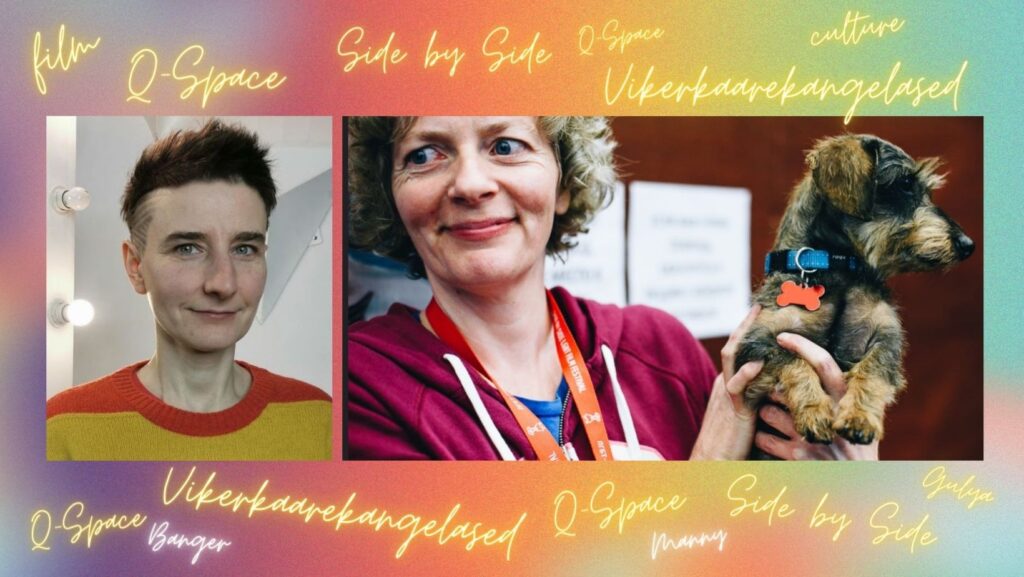We can’t put people in just one category
Similarly to Estonia, the constitution of Romania defines family as a gender-neutral institution based on the marriage of spouses. This definition has incited the organisation Coalition for Family (Coaliția pentru Familie). In 2015 and 2016, they collected nearly 2,6 million signatures in support of the initiative to change the wording of the constitution: “The family is based on the marriage between a man and a woman.” The referendum on changing the constitution may already take place this November, and considering the overall social attitudes, the outlook is not good for the LGBT community.
I met with Vlad-Levente Viski, the president of the local LGBTQIA organization MozaiQ, who told me about the situation for the community in Romania, and about how the pre-referendum moment can be an opportunity to change society for the better.
What is the position of the Romanian state regarding LGBT issues?
First of all, Romania was one of the last three countries in Europe to decriminalize homosexuality. It happened in 2001. Before that homosexuality and the so-called homosexual propaganda were punished by the penal code and LGBT people were actually sent to prison.
In 2000, the anti-discrimination legislation was passed, and in 2001 the decriminalization of homosexuality. These were the two steps forward for Romania and the LGBT community. However, in the following 16 years, there has been no other legislation passed in favour of LGBT people. And the 2001 legislation has not been updated.
The civil union bill has been introduced three times: in 2013, 2015 and 2016. The first two were rejected and the third is now in parliament. So the state hasn’t really been doing anything for the LGBT community.

Photo: Foto: Virginia Lupu
How would you describe the general LGBT situation in Romania?
It’s very bad, there are many problems. There still are cases of people being fired for being gay. There is legislation against discrimination, but it’s hard to implement in these cases.
Also, we don’t have a mapping of the situation outside of Bucharest; there are probably many gay people marrying into straight marriages. It is a widespread issue that parents abuse their LGBT children and we don’t have shelters for these people.
Then there’s the issue of HIV and the lack of information about it. The last survey in 2005 showed that 5 percent of LGBT people live with HIV. The medication is available but LGBT people are often treated poorly in the hospital. I know many cases of gay people being shamed by the doctor, their confidentiality not being respected.
There are also issues in the trans community – the majority of trans people can’t find jobs, can’t change their documents. The whole process of changing your legal gender (?) is extremely humiliating. In the last 15 years there have been six or seven cases of people managing to change their documents.
Then there are psychological issues, which are not treated. We simply do not have services for it. In a country of 20 million, you can’t provide services when we have two psychologists in Bucharest available for the community… (If taking into account that the ratio of LGBT people amongst the population is 4% then it can be presumed that the number in Bucharest is about 96 124. edit.)
It all goes back to decriminalizing homosexuality so late. In Hungary, Czechia, Bulgaria, even in the 80s you had gay bars, apartment parties, some gay people dared to go out dressed more flamboyantly. This enabled the build-up of the gay identity, the queer identity. And in Romania gays were being arrested until 2001. There was no time to build an identity. Now it’s slowly being built.
Gay pride has been taking place in Bucharest since 2005. In 2006-2007 there was violence at the pride; after that, pride has been happening with no violence, but with very few participants. In the last two years, the prides have been very successful with over 2500 participants.

Bucharest Pride 2017. Photo: Felix / Flickr CC
Tell me more about the upcoming referendum.
The aim of the referendum is to forbid the marriage of same-sex couples, to change the constitution in order to enable marriage only between a man and a woman. The thing is that right now the civil code already forbids same sex marriage and gay civil union.
The referendum was initiated by Coalition for Family, which connects 40-50 organizations. They are promoting the hateful discourse; for example, they favour conversion therapy. They say that gender identity and sexual orientation is a made up thing. They warn against paedophilia, they warn against bigamy, they claim the end of the world is coming and our traditional way of life is in danger.
In 2015-2016 they were able to collect 2,6 million signatures in favour of changing the constitution. This is a very large number of signatures and in connection with the upcoming elections, all the parties started competing for these 2,6 million votes. Right now the left-wing political party, which runs the government, has claimed the referendum as their own and they are pushing for it extremely loudly. Which is crazy as we are talking about a left wing, so-called socialist government, which is pushing for an initiative to exclude certain citizens, a minority, from the public arena. This is what we’re dealing with.
What is the position of the Romanian Orthodox Church in this debate?
In 2003, the church had 90% trust among the public, now they are at about 50% or under. The referendum campaign was an attempt to legitimize them. At every step of the way the church has opposed gay rights and they have put this in the core centre of their doctrine. It’s very difficult to find LGBT people in Romania who believe in god, as they find themselves always in opposition to the church.
One thing that is important to mention about the referendum is the connections that the church and Coalition for Family have with the neo-protestant and conservative groups in America, like Liberty Counsel and Alliance Defending Freedom International, which both are considered hate groups in America. For the past five years, they have increased their funding for European operations. They have been involved in Croatia, with the referendum which banned same sex marriage in 2013. Also in Slovakia in 2015 where a similar referendum failed. They have also been involved in the abortion rights debate in Ireland. They are all over the area and now also in Romania. You can follow the connections and the funding, the Alliance Defending Freedom even submitted a proposition to the constitutional court in Romania regarding the referendum. They are not doing it behind closed doors, they do it right in front of our eyes.
What results can be expected from the referendum?
There is a threshold for any referendum to be valid, which is 30% of voters. That is quite a high number, about 6 million people.
In the LGBT community the opinions are divided – should we participate or not? If you’re not participating, you are saying: I’m not going to legitimize this referendum, because it’s immoral, it’s undemocratic, it tries to strip away rights from the people. If the threshold is not reached the whole referendum would be futile. Similar referendums have been used by extreme right-wing parties or authoritarian governments in order to legitimize their power: Viktor Orbán’s anti-immigration referendum in Hungary, which failed, or Erdoğan’s referendum in Turkey to take away rights from citizens.
And then there is a certain group of people in the community that want to participate and vote NO. The idea is that, even if we lose the battle, afterwards in the negotiations with the political parties, we would have something to show, we would have some votes we can bring to the negotiation table. There are some politicians coming out in favour of the civil partnership bill. They are claiming that once the referendum is over, once the ban on same sex marriage is implemented, that’s when they would pass the civil partnership bill. However, another discussion is whether if the LGBT community is willing to have this exchange because you don’t really bargain with your rights in such a manner.
Now the opinions are split and we will see which way it will go. It’s important that we have the internal debate on this issue within the community.
There is one more critically important issue about the referendum – the division in society: on one hand, there is the European, the enlightened, the urban, the contemporary, put against the medieval, the orthodox, the conservative… It’s an extremely dangerous approach, especially from the feminist or queer point of view, the critical thinking point of view. We shouldn’t divide society into two classes in such a way: there are LGBT working people, most trans people are extremely poor. We can’t put people in just one category.
Where do you see positive changes?
It’s important to see when the political opportunity structure shifts. We have this anger that people feel that you have to channel towards something. We have to mobilize people because of their anger. I think that’s extremely important and that has been happening.
The whole LGBT movement was revived in 2015 when the referendum issue appeared. During these times of difficulties and anger, people do get more interested and active. We need to find ways how to build a social movement based on that.
Despite everything, we are living the best times in the history of LGBT movement in Romania. Yes, there is the approaching referendum and the opposition by the orthodox church, there is the rising violence, there are all these bad things happening. But at the same time, there are more young people who are out, more allies than ever, we have social media which allows us to reach many more people much faster. There are journalists, university professors that have come out against the referendum.
The shift in the public discourse has already happened and this is the beginning of a larger social movement that will continue. Otherwise … I mean, it has to continue.











